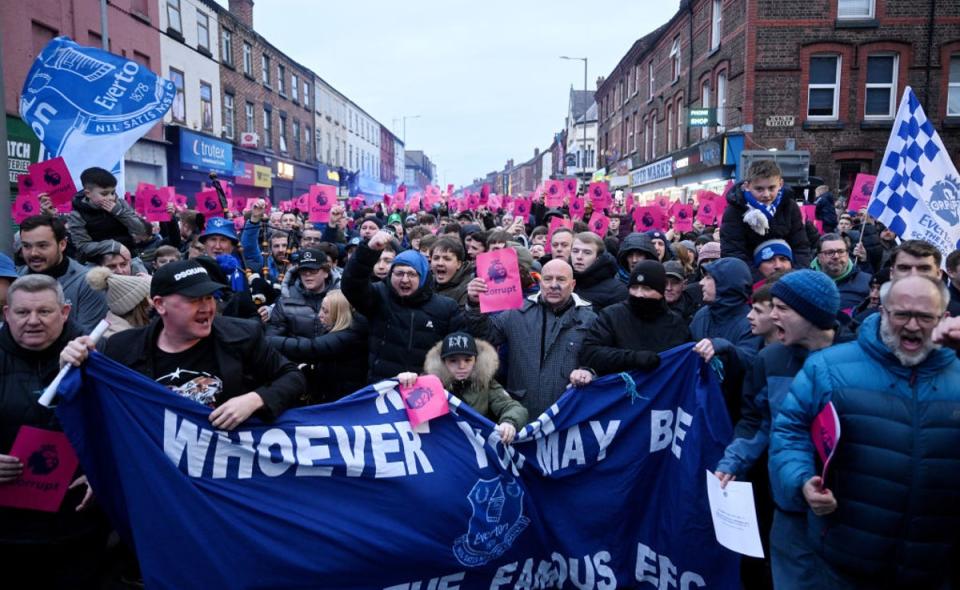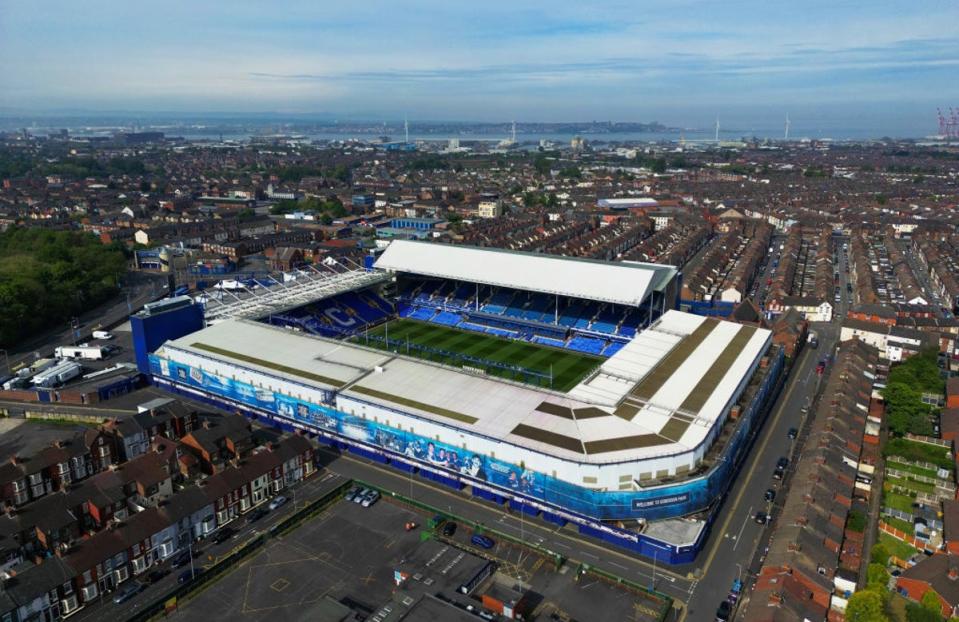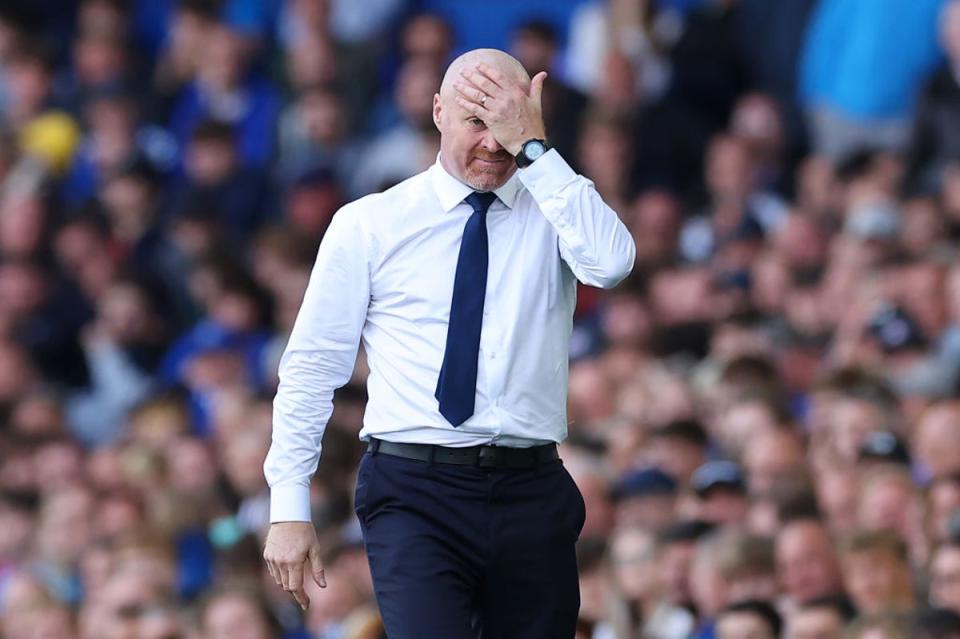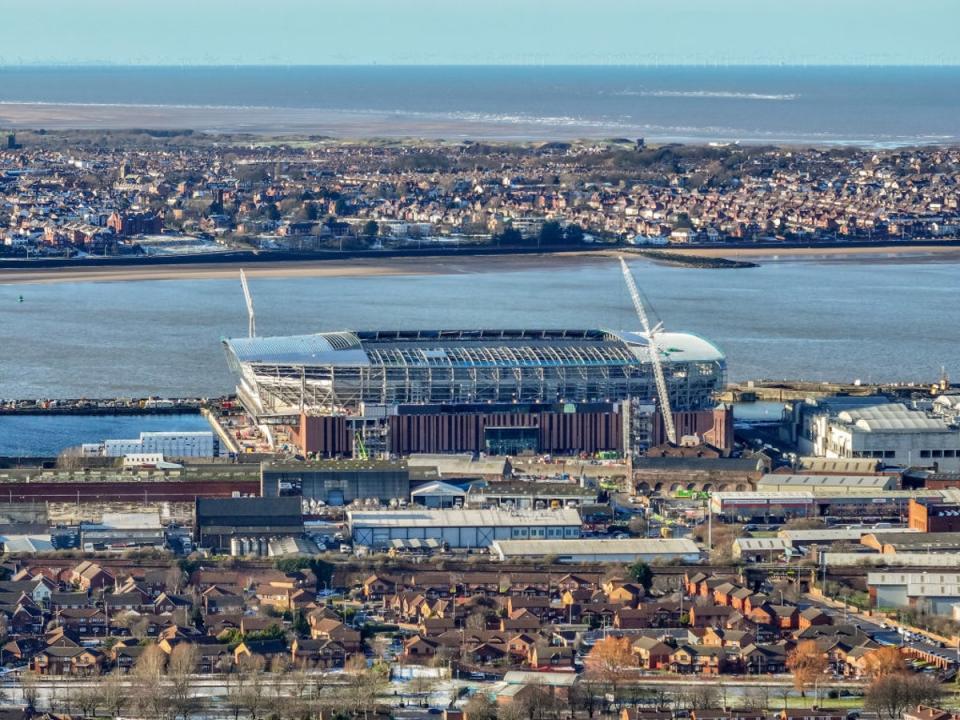As Liverpool prepare for a derby that could decide the title race, there are already comments on the training pitch about how Everton will inevitably play above themselves. That would be quite an increase, however, as Sean Dyche’s side has been largely dismal. They may have won against Nottingham Forest this weekend, but morale isn’t much better. The controversy surrounding Forest’s post-match statement criticizing referees’ decisions only adds to the mood. There was a feeling of getting away with it, because there were much bigger problems weighing on the club. If Liverpool are playing for Jurgen Klopp’s place in history, Everton are playing for their future. It really is that extreme, now that the club may still be weeks away from being board.
Even on the football side, few are truly happy, which sums up modern Everton. They have become a tragic case study for many of the problems in the modern game. Many of the issues complicating football in 2024 are on display at Goodison Park, as if the distinctive history of this great club has uniquely distilled all of these issues. That goes from the field to almost everything outside of it. There’s how you play, how a club is governed, what a club can aspire to, how you compete, how you spend money, the economics of the sport, right down to regulation and – most importantly – ownership.
Everton have brought it all together. It all stems from one big moment in football history, when the team was much closer to Liverpool in quality and then joined them in a groundbreaking scheme. The Merseyside rivals were two of the original ‘big five’ – along with Manchester United, Arsenal and Tottenham Hotspur – who pushed for a breakaway from the Football League into the Premier League. Everton’s fall from that status has made them a cautionary tale in football history. Like Rangers and Milan, both of whom were among the biggest influences in the creation of the Champions League, they have become victims of the world they helped create. Everton wouldn’t be able to exert the same control in that world, and the most relevant truth right now is that it has caused their finances to spiral out of control.
Despite that, and the morass of confusing details in their ongoing PSR affairs, it is possible to trace the club’s demise and how all these modern issues became intertwined and influenced each other.


To put it bluntly, the Premier League was a huge factor in turning football into a financial arms race. Born out of the neoliberalism of the 1980s, combined with other pivotal moments such as the Bosman ruling, the Champions League and even the growth of the internet, the game has become the most open market in the world. Clubs could now grow as big as their commercial revenues allowed. That promoted these “virtuous cycles,” where more money meant better signings, which meant more international interest, which meant more money. This goes on until you reach a point of concentration of wealth where there are only about fifteen super clubs and twelve of them are trying to break away.
Everton found themselves thrown out of the cycle and going through a bad spell at exactly the wrong time. They had been the English league’s third most successful club at the creation of the Premier League, with nine titles putting them behind only Arsenal and Liverpool. They subsequently found themselves on the wrong side of the table as interest in the Premier League spread globally. David Moyes restored respectability and a sense of identity, but an ongoing discussion in the final years of his time was about a ‘glass ceiling’.
That ceiling is now largely covered, with the ceilings above commercially reaching the stratosphere. Ultimately it went from the old ‘big five’ to the new ‘big six’, with a host of other associated factors combining to widen the financial gap. In Everton’s case, they became the second club in a mid-sized northern city never to gain the visibility that came from Champions League qualification. Bill Kenwright was late to realize what the hierarchy of clubs like Aston Villa and Newcastle United had in the mid-2000s. It was impossible for that anachronistic part of the British millionaire owner to compete properly in a new world of Roman Abramovich, Abu Dhabi and billions and billions in revenue. They needed to sell, but couldn’t attract that top end of buyers.


This has provoked an identity crisis, which ultimately led to this existential crisis. Given their history, Everton understandably felt they needed to compete at an elite level. The problem was that they couldn’t pay the same wages but kept trying to play the same game. Everton made many decisions that seemed befitting of a ‘big club’ – right down to hiring names like Ronald Koeman and even Carlo Ancelotti, to bringing in James Rodriguez – but they could never achieve the scale required. It has been claimed that this was the most self-defeating and frustrating pursuit in English football history, inevitably leading to widespread criticism of Everton as “the worst run club in the country”. Even if they did come close, as with Romelu Lukaku under Roberto Martinez, this only meant that richer clubs immediately took their best players.
It’s frightening to imagine what Everton could have been had they made the decision to adopt a model like Brighton’s ten years ago, but they would have had to accept some hard truths.
Instead, they threw themselves wholeheartedly into the Premier League’s maddening wage race, to the point that salaries took up more than 80 percent of their budget.
That’s how they’ve become this hub for the latest Premier League issues, from the competitive balance debates to regulation. This historic club has set a historic precedent as they were the first to experience violations of cost control rules. The controversy has sparked widespread debate over who can “invest” to try to compete. And yet Everton’s entire situation illustrates the folly of that model, and why solutions to this debate should go in the opposite direction. It should be about redistributing current wealth, not leaving the entire competitiveness of the game dependent on who wants to buy you. That is not sustainable. After all, imagine what would have happened to Everton if they had been allowed to keep spending. As repeated figures with knowledge of the club in recent years say: where was the financial discipline? Who warned that they would get in trouble if they kept doing this?


Even worse, what would have happened if they became even more dependent on sponsor Alisher Usmanov’s money, as was his plan? His sanctions for ties to Vladimir Putin could have been much more damaging.
Now Everton are looking for new buyers after a controversial takeover by 777 Partners collapsed. The latter was welcomed by large sections of the fanbase – and many within the game – due to the investment firm’s worrying track record with other clubs.
There was also the core problem that they were only interested in the purchase because they saw Everton as a ‘distressed asset’. It should be an indictment of modern football that a club of this stature can be viewed this way in any situation, but especially after three decades of receiving billions from Premier League broadcast revenue. If so, something has gone wrong with the entire model. What’s the point of so much money? What is it actually for?
Paul Quinn, an Everton supporter who writes about the club from a background of financial expertise, certainly thinks this is the case. He has also spoken out against 777.
“It is obviously very disappointing that we are in this case study. I think it reflects two things,” says Quinn. “One of them is the administration of football. Now the Premier League would argue that it is not their job to ensure Everton does not go bankrupt, but given the interdependence between all clubs, it is detrimental to football in general if one club leaves.
“Every owner should be the custodian of their own club, but the Premier League should be the custodian of the game. So the owners have failed and the Premier League has failed. This is ultimately the reason why the regulator goes along.”
The hope is that it is not too late for Everton, but they now face perhaps the most important month in the club’s history. If no new buyer is found – and it must be a buyer who donates money to the new stadium – they could be put into administration and face further points deductions. In any case, there is interest beyond 777.


The following is a view that fans may find difficult to accept and even rage against, but which is reflected in football: that a certain settlement might be what is best for the soul of the club and for the long-term future.
Everton has been getting away with surviving in the Premier League for years. But instead of resetting the club, it has only caused so many problems that the situation now seems unsolvable. Everton are so top-heavy that they almost fall over.
Would it be better for the future to rise again as a sustainable, fan-owned Phoenix club? It’s not like they wouldn’t shoot through the divisions quickly. There are many successful examples in other countries, not least Italy.
Quinn doesn’t go that far. “Ideally not, but it is a better option than an owner like a 777.”
That says enough. It’s even more telling that one of the founders of the Premier League, and one of England’s most successful clubs, has gone on to encapsulate all the key issues in modern football.